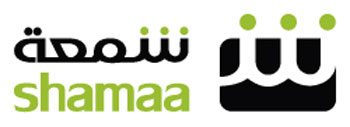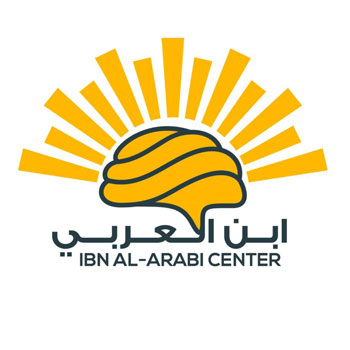Hermeneutics Features in the Thought of Muhammad Rkoun, Its Mechanisms, and Its Limits
DOI:
https://doi.org/10.56989/benkj.v1i3.1173Keywords:
Muhammad Arkoun, hermeneutics (interpretation), semiotics and linguistics, anthropology, phenomenologyAbstract
Arkoun seeks to employ all procedural tools, concepts, perceptions, and approaches that have been decided upon in the Western humanities and social sciences, and all philosophical and critical theories produced by Western experiences, such as “discourse analysis trends” and “literary criticism”. What distinguishes Arkoun is that he does not adhere to a particular theory, but selects from theories and concepts that are compatible with his hermeneutics of religious thought.
Although he is aware of the obstacles facing such dealing with Islamic thought, he sees the need for Islamic thought to be liberated from all forms of cognitive and methodological backwardness that it suffers from, by establishing a new way of religious thinking that is open to the achievements of modernity and is not subject to technological precedents. , and moving away from the line of reverence, and the position of conformity.
The researchers used the comparative analytical method in their study and reached a set of results, the most important of which is: (Arkoun) believes that complete understanding is a realization of complete ignorance, because the intellectual possession of the concept, with the realization that concepts are not always continent, but rather they are constantly evolving through the development of knowledge. , where it acquires semantic and pragmatic values with frequent use and its entry into new fields of knowledge. It then quickly evades the dominance of conceptual thought with the increase of its cognitive dimension in search of its function of use. Interpretation, as Arkoun says, is not immune from evading such a development over the time of its use. Its long history, and its entry into multiple fields of knowledge, also earned it the character of evading the dominance of conceptual thought, in search of its interpretive function. In order to obtain less evasion, it is necessary to unite various sciences in our hermeneutical approach.
Metrics
References
- أركون، محمد(1990) الإسلام، السياسة والأخلاق، ترجمة هاشم صالح، اليونسكو، باريس، ط 1، بيروت، مركز الإنماء القومي.
- أركون، محمد(1993) أين هو الفكر الإسلامي المعاصر؟ من فيصل التفرقة إلى فصل المقال، ترجمة، هاشم صالح، بيروت، دار الساقي.
- أركون، محمد(1996) العلمنة والدين، الإسلام المسيحية، الغرب، ترجمة هاشم صالح، ط3، دار الساقي.
- أركون، محمد(1996) الفكر الإسلامي قراءة علمية، ترجمة، هاشم صالح، ط2، بيروت، مركز الإنماء القومي.
- أركون، محمد(1996) تاريخية الفكر العربي الإسلامي، ترجمة، هاشم صالح، ط2، بيروت، مركز الإنماء القومي.
- أركون، محمد(1999) الفكر الأصولي واستحالة التأصيل، ترجمة، تحقيق: هاشم صالح ط1، بيروت، دار الساقي.
- أركون، محمد(2000) قضايا في نقد العقل الديني، كيف نفهم الإسلام اليوم؟ ترجمة هاشم صالح، ط2، بيروت، دار الطليعة.
- أركون، محمد(2001) الإسلام، أوروبا، الغرب، ترجمة، تحقيق: هاشم صالح، ط2، بيروت، دار الساقي.
- أركون، محمد(2001) القرآن من التفسير الموروث إلى تحليل الخطاب الديني ترجمة هاشم صالح، ط2، بيروت، دار الطليعة.
- أركون، محمد(2001) معارك من أجل الأنسنة في السياقات الإسلامية، ترجمة هاشم صالح، ط2، بيروت، دار الساقي.
- أركون، محمد(2007) الفكر الإسلامي نقد واجتهاد، ترجمة، تحقيق: هاشم صالح، ط6، بيروت، دار الساقي.
المراجع:
- ابن منظور، (2005) لسان العرب، المجلد السادس، ك – ل، ط1، بيروت، دار الكتب العلمية، ج1.
- أبو زيد، نصر حامد (2000) النص والسلطة والحقيقة، ط4، بيروت، المغرب، المركز الثقافي العربي.
- بن حسن، حسن(1992) النظرية التأويلية عند ريكور، ط1، مراكش، نشر: ج.ج. تنسيفت، دار تينمل للطباعة والنشر.
- بوعزة، محمد(2004) رهان التأويل، ثقافات، مجلة فصلية، كلية الآداب، جامعة البحرين ربيع 2004.
- التريكي، فتحي(1992) رشيدة التركي، فلسفة الحداثة، بيروت، مركز الإنماء القومي.
- الجابري، محمد عابد (2000)، العقل السياسي العربي، محدداته وتجلياته، ط4، بيروت، مركز دراسات الوحدة العربية.
- حنفي، حسن(2007) حصار الزمن، ط1، بيروت- الجزائر، الجزء الأول، إشكالات، الدار العربية للعلوم ومنشورات الاختلاف.
- ريكور، بول (2003) نظرية التأويل، الخطاب وفائض المعنى، ترجمة سعيد الغانمي، ط 1، بيروت، المغرب، المركز الثقافي العربي.
- زيادة، معن(1986): الموسوعة الفلسفية العربية، ط 1، المجلد الأول، معهد الإنماء القومي.
- السواح، فراس (2001) الأسطورة والمعنى، دراسات في الميثولوجيا والديانات المشرقية، ط2، دمشق، دار علاء الدين للنشر والتوزيع والترجمة.
- شرفي، عبد الكريم(2007) من فلسفة التأويل إلى نظريات القراءة، ط1، الجزائر، منشورات الإختلاف.
- صالح، هاشم (1994) قراءة في الفكر الأوروبي الحديث، كتاب الرياض، العدد6.
- العروي، عبد الله (1988) ثقافتنا في ضوء التاريخ، ط2، لبنان، المغرب، المركز الثقافي العربي.
- العظمة، عزيز(2002) دنيا الدين في حاضر العرب، ط1، بيروت، دار الطليعة للطباعة والنشر.
- الفجاري، مختار(2005) نقد العقل الإسلامي عند محمد أركون، ط1، بيروت، دار الطليعة.
- النحال، مصطفى (2000) من الخيال إلى المتخيل، سراب مفهوم محمد عابد الجابري: مجلة فكر ونقد، المغرب، المجلد/العدد: 33.
- DOMINIQUE MAINGUEREAU et PATRICK CHARANDEA, (2002), dictionnaire d’Analyse du discours Editions du Seuil, FRANCE.
Downloads
Published
How to Cite
Issue
Section
License
Copyright (c) 2021 Ibn Khaldoun Journal for Studies and Researches

This work is licensed under a Creative Commons Attribution-NonCommercial 4.0 International License.






























 ElDjawda Soft
ElDjawda Soft